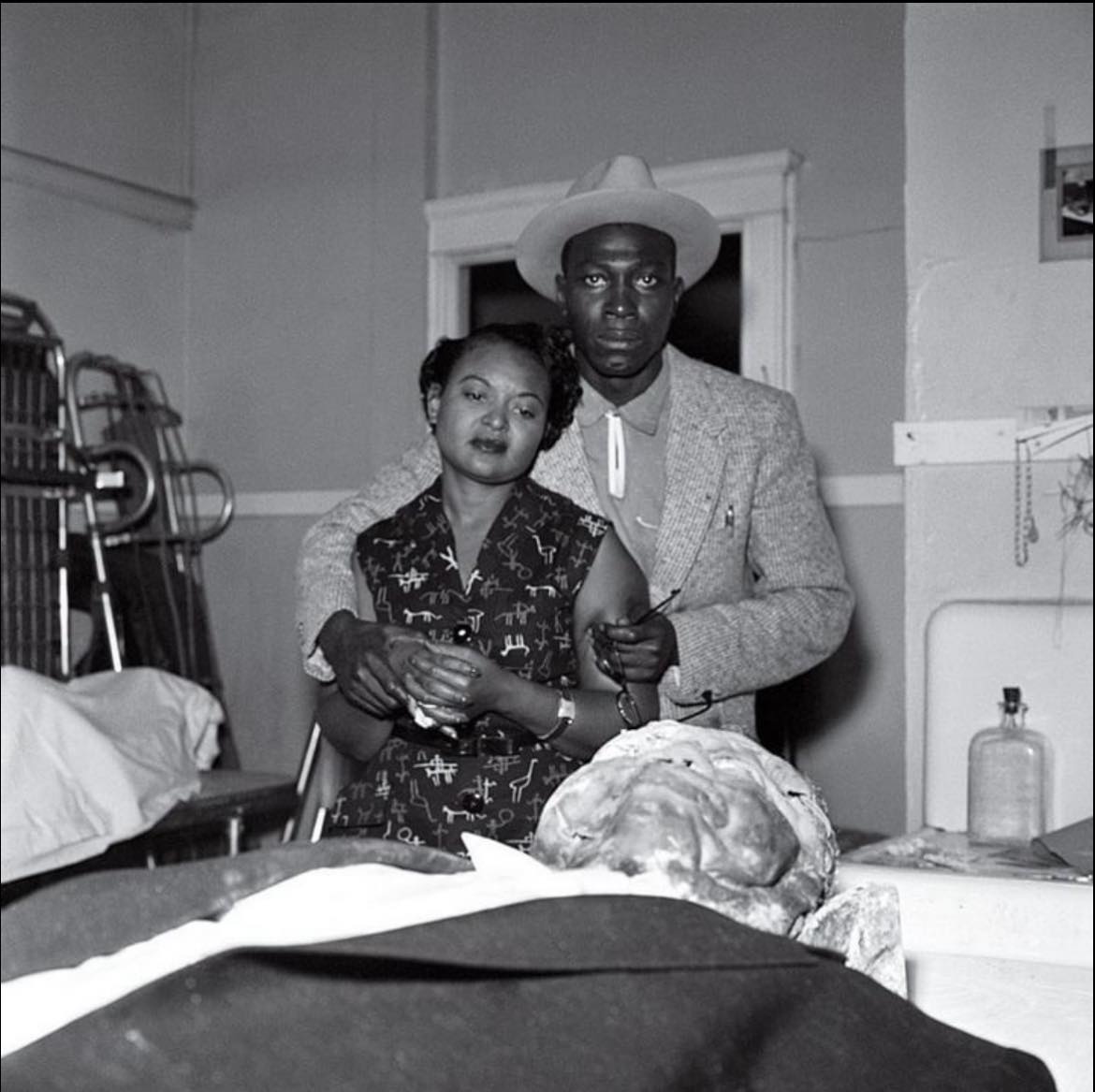Emmett Louis Till: A Story That Shook and changed America
It was August 1955 when Emmett Till, a 14-year-old boy from Chicago, stepped off a train in Mississippi for what was supposed to be a summer visit with family. The South he entered was not the America he knew. It was the Jim Crow South — where segregation was law, and Black lives were disposable to many in power. By the end of his visit, Emmett Till would become a name that echoed through generations.
A Boy from Chicago
Emmett was born in 1941 to Mamie Till-Mobley and Louis Till. His father, a soldier, died during World War II — hanged in Italy after a military court-martial. The details of that trial remain controversial, and he was buried in Plot E in France, a section reserved for dishonorably discharged soldiers. For young Emmett, the absence of his father didn’t stop him from growing into a lively, smiling, curious teenager who loved jokes and baseball.
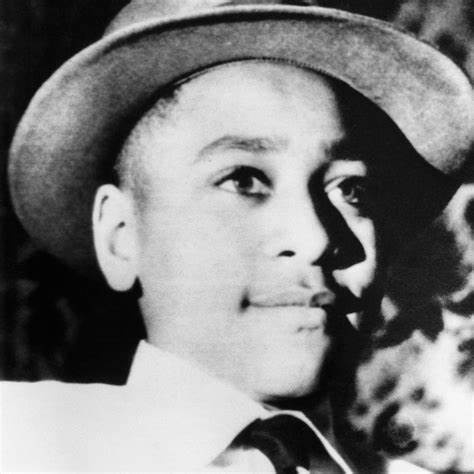
In the summer of 1955, Emmett traveled to the Mississippi Delta to visit his great-uncle, Moses Wright. It was meant to be a chance to experience the rural South and connect with family. But within days, he would be dead — brutally murdered for allegedly whistling at a white woman, Carolyn Bryant, in a small grocery store.
The Kidnapping and Murder
Late at night on August 28, two white men — Roy Bryant and J.W. Milam — showed up at Moses Wright’s home. They demanded the boy who had “done the talking.” Moses Wright was 64 at the time and powerless to resist. He watched as they took Emmett away. It was the last time Emmett would be seen alive.
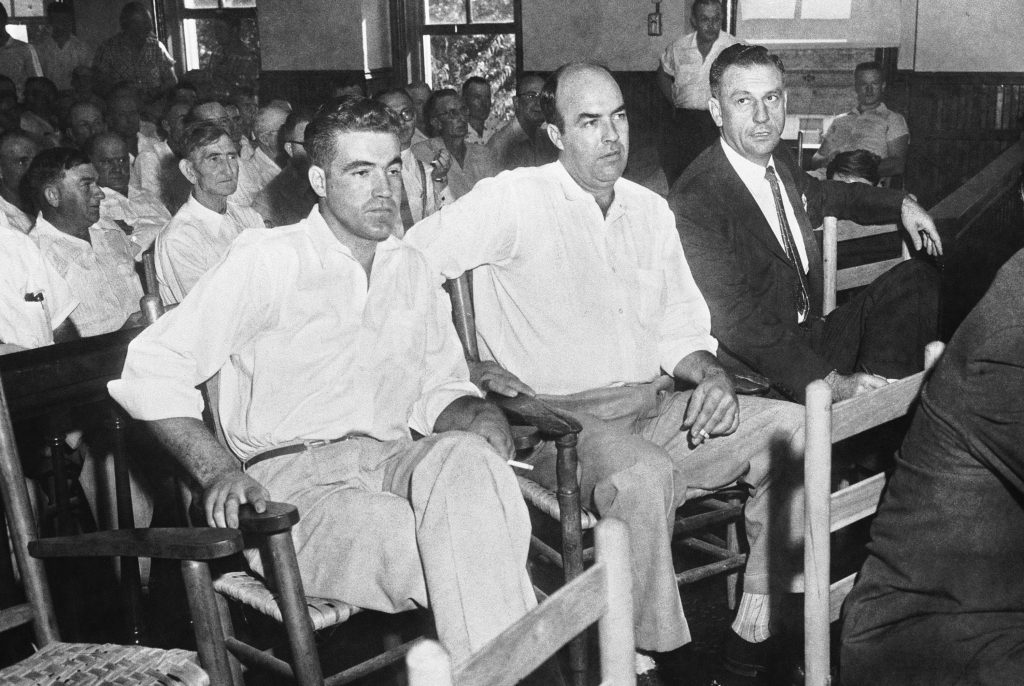
His body was found three days later in the Tallahatchie River. He had been beaten beyond recognition, shot, and tied with barbed wire to a 75-pound cotton gin fan. Only a ring — engraved with his father’s initials — helped identify him.
“Let the People See What They Did”
Back in Chicago, Mamie Till-Mobley was handed the impossible task of burying her only child. When the body was returned, officials urged her to keep the casket closed. She refused.
Instead, she insisted on an open casket and left her son exactly as he was — disfigured, bloated, mutilated. She wanted the world to see the truth. At the funeral, thousands came. Photos of Emmett’s body were published by Jet magazine and other Black newspapers, shocking the nation. The image was unbearable. But it was necessary.
She later said, “Let the world see what I’ve seen.”
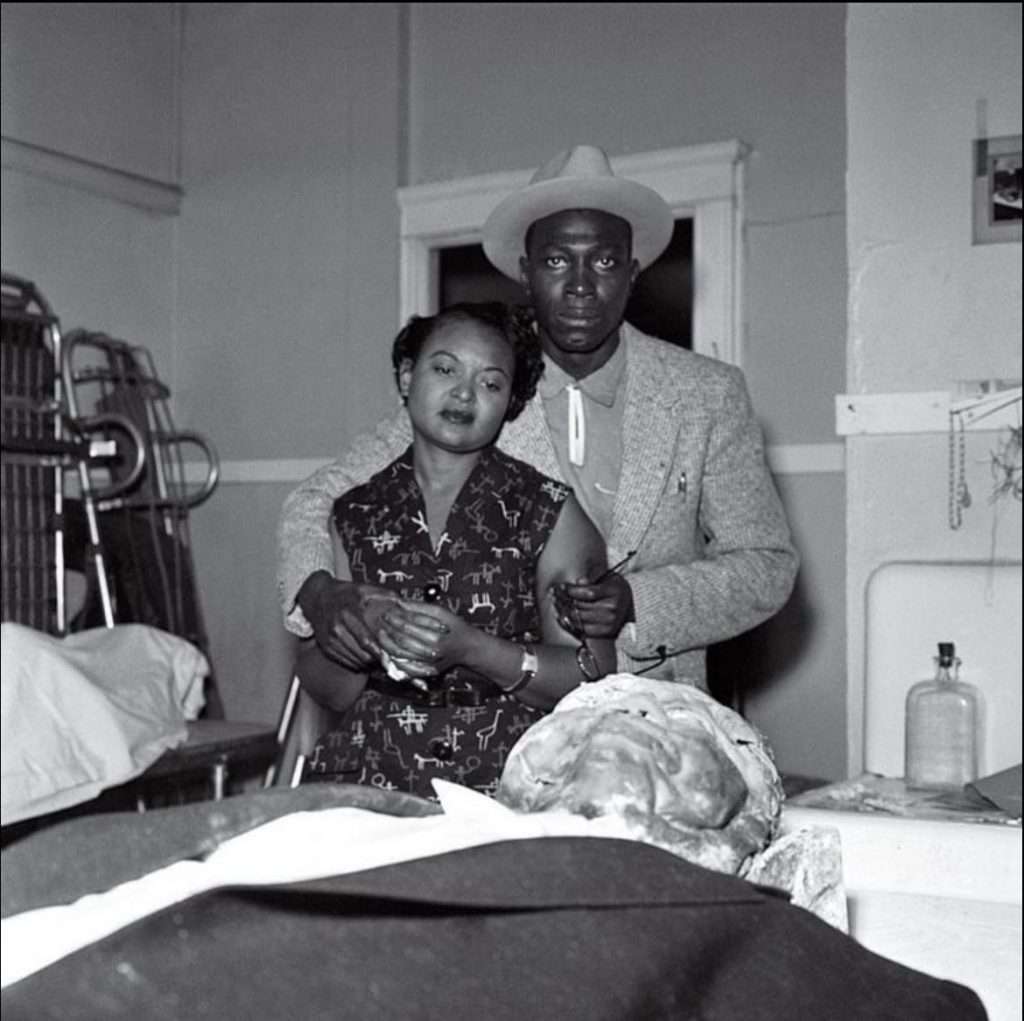
“Dar he.”
The murder trial in Mississippi became a national event. The two men responsible were arrested and brought to court. The jury was all white. The town buzzed with reporters, activists, and the quiet terror of Black witnesses asked to testify against white men in the Deep South.
Moses Wright, Emmett’s uncle, took the stand. His wife had begged him not to testify, fearing retaliation. He sent her North for safety and walked into court alone. When asked who had taken Emmett from his home that night, Wright stood, pointed directly at the defendants, and said clearly: “Dar he.”
It was a moment that pierced the silence — a Black man pointing at white killers in a segregated Mississippi courtroom. That simple phrase later became the title of a documentary, and a defining act of courage in the civil rights struggle.
Justice Denied, Again and Again
The jury took just over an hour to deliberate. Some say they would’ve finished sooner, but they took a break to “make it look good.” Roy Bryant and J.W. Milam were acquitted.
Months later, protected by double jeopardy laws — which prevent someone from being tried twice for the same crime — the men admitted to killing Emmett. They sold their story to Look magazine for $4,000, roughly $50,000 in today’s money. They described in detail how they murdered Emmett, showing no remorse.
The trial, the acquittal, the confession — it all reinforced a harsh truth: in the Jim Crow South, a Black child’s life could be taken without consequence.
His Memory Is Still Attacked
The pain didn’t stop with the verdict. Emmett Till’s memorial in Mississippi has been repeatedly defaced. People have shot at it so many times that officials had to reinforce it with bulletproof glass. Each act of vandalism is a reminder that the hate which killed Emmett never fully disappeared.
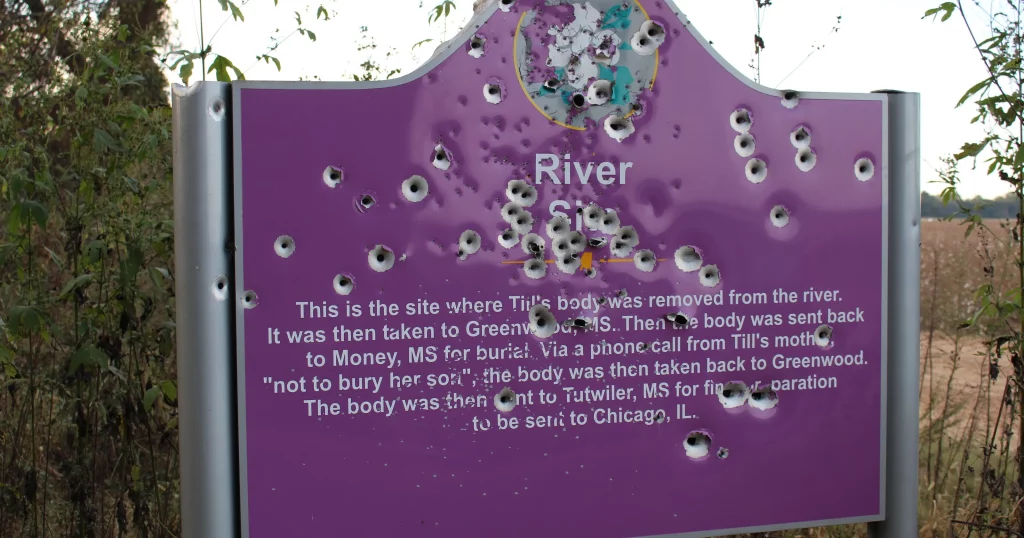
And in 2022, nearly seventy years after his murder, a Mississippi grand jury once again declined to bring new charges against Carolyn Bryant, who had since admitted that parts of her original accusation were false. It was another chance to reckon with the past — and another door slammed shut.
He Was So Beautiful
When you look at pictures of Emmett before his death, you see a boy. Not a symbol. Not a martyr. A child. He had a soft face, a broad smile, and the kind of playful energy familiar to anyone who’s raised a teenager. That’s why Mamie’s decision to show what had been done to him mattered so much. She forced America to see not just what was lost, but what was taken.
Why It Still Matters
The lynching of Emmett Till was not the beginning of racial violence in America. But it became a spark. The photographs from his funeral ignited outrage. The brazenness of his killers and the courage of his family lit a fire in the civil rights movement.
Rosa Parks would later say that she thought of Emmett Till when she refused to give up her seat on a Montgomery bus.
We remember Emmett not just because of how he died, but because of how his death changed people.
- It changed how the media covered racism.
- It changed how Americans understood violence against Black citizens.
- It changed the course of history.
A Legacy Etched in Stone — and in Hearts
Emmett Till was laid to rest in Chicago. His body was exhumed decades later as part of a federal investigation, but he remains where Mamie chose — among his people, in his hometown.
His story is now part of museum exhibits, school curricula, documentaries, and national conversations. His name has been spoken by presidents. But no justice has ever come in a courtroom.
That’s the hardest part. Justice was not done. Not in 1955. Not in 2022. Not yet.
He Will Always Be Remembered
What happened to Emmett Till should never have happened. It should not happen again. His mother’s strength, his uncle’s bravery, and his own innocent life remind us of how deep the wounds of racism go — and how courage can turn pain into power.
Rest in peace, Emmett Louis Till.
You were a boy. You were loved.
And you are a legacy.
